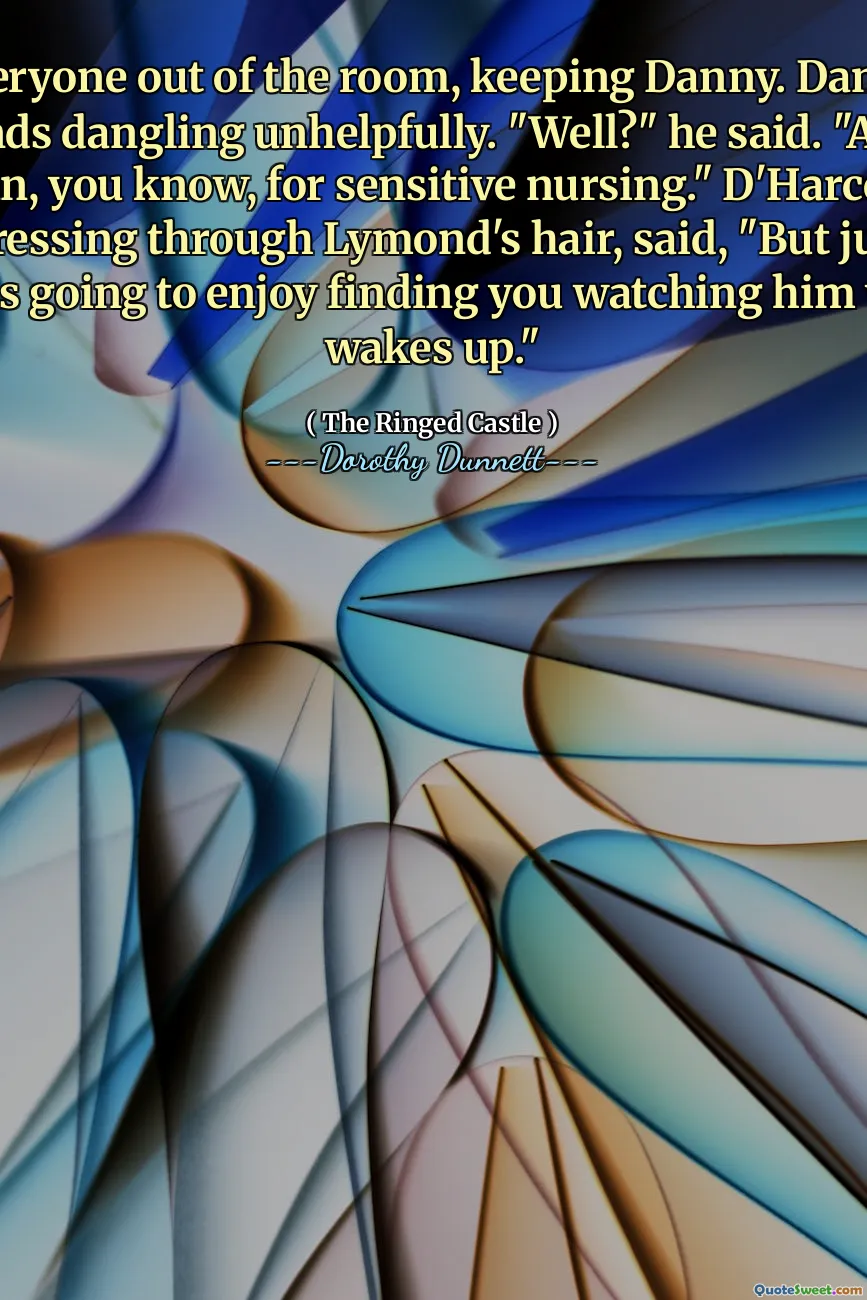
He got everyone out of the room, keeping Danny. Danny stood, his hands dangling unhelpfully. "Well?" he said. "Adam is your man, you know, for sensitive nursing." D'Harcourt, his hands pressing through Lymond's hair, said, "But just think how he is going to enjoy finding you watching him when he wakes up."
[Markdown format]
This excerpt from Dorothy Dunnett's The Ringed Castle explores themes of secrecy, intimacy, and psychological manipulation within complex relationships. The characters are engaged in a tense moment, where the act of evacuation from the room signifies a desire to keep certain emotions or revelations private. The description of Danny standing with helpless hands suggests a mix of confusion and submission, hinting at underlying power dynamics.
D'Harcourt’s remark about Adam's reaction to being watched indicates an undercurrent of mutual awareness of vulnerability and the thrill found in intimacy or perhaps voyeurism. The layered dialogue reveals an intricate interplay of trust, control, and anticipation, which often characterizes Dunnett's works—where people's motives are layered, and understanding their true intentions requires careful reading.
This segment prompts reflection on how humans handle sensitive situations and the delicate balance of power in relationships. The mention of "sensitive nursing" could be literal or metaphorical, implying both care and a closer inspection of emotional or physical states. It raises questions about consent, privacy, and the psychological games that individuals might play when they believe they are unseen.
Furthermore, the scene demonstrates how language can betray intentions, with characters understanding more than what is openly stated. Dunnett’s writing invites us to consider the nuances of human interaction—what is spoken, what is left unsaid, and the covert messages conveyed through tone and gesture. Overall, this passage exemplifies her mastery in creating tension and depth within her characters' relationships, highlighting the vulnerability that underpins much of human connection.
The layered dialogue and carefully constructed scene challenge readers to think about the complex emotional politics that drive behaviors and relationships in titles like this, emphasizing the importance of perception and the subtext lurking beneath spoken words.





